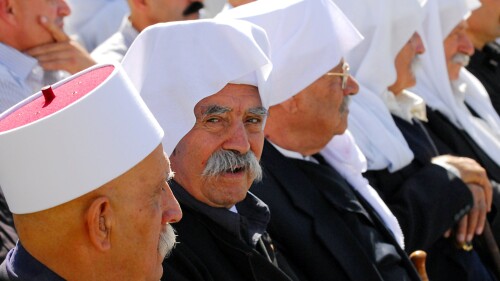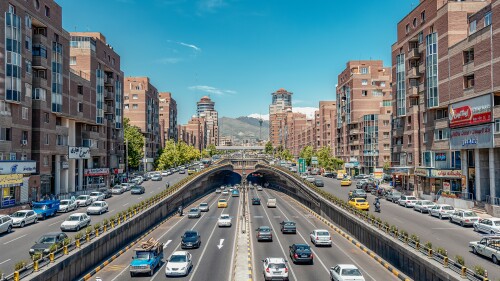On June 13, 2025, Israel began military strikes against the Islamic Republic of Iran’s military and nuclear sites. While the regime hoped to rally the Iranian people around the flag of nationalism as during the Iran-Iraq war, Israeli strikes ironically brought Iranians and Israelis closer.
Both communities seek happiness and a better future. Many Iranians and Israelis hope that they might soon travel between Tehran and Tel Aviv. But why?
Despite the Iranian regime’s efforts to isolate them from the free world, Iranians continue to share messages of hope.
Despite the Iranian regime’s efforts to isolate them from the free world, Iranians continue to share messages of hope. One student from Tehran said his professor sent a message in the class group chat, saying that “the future of this country is in your hands, you are the future. Sometimes the bright days would come after the challenges a nation faced for decades. Light will triumph over darkness soon.” Israelis also tried to send the message of support and friendship to the Iranian people. In reaction to a viral video made by Israelis for Iranian people, an Iranian wrote on X: “The Islamic Republic hit residential areas in Israel; yet the Israeli people are standing next to these areas and sending messages of love and friendship to us Iranians. How understanding they are, honestly.”
One aspect affecting the unity between the two communities is the continuous messages from Israeli officials to the Iranian people—a message of friendship, from Prime Minister Benjamin Netanyahu and from others, including Minister of Diaspora Affairs Amichai Chikli and Minister of Innovation, Science and Technology Gila Gamliel. On June 24, Sara Netanyahu also posted an artificial intelligence-generated photo of two lions next to each other, draped with the flags of Iran and Israel. “We believe in a future of peace, freedom, and friendship between our peoples,” she wrote on Instagram.
These messages, along with the fact that Israeli strikes targeted regime officials rather than civilians, have increased Iranians’ trust toward Israelis.
In a remarkable message from Berlin, the mother of Pejman Gholipour, a 19-year-old Iranian murdered during 2019 mass protests, showed support for the Israel Defense Forces, stating that the enemy is the Islamic Republic. Other victims of the Islamic Revolutionary Guard Corps also attended this rally in front of the Iranian Embassy; they all emphasized the enmity of the Iranian regime with the Iranian people.
Some Iranians worry about regime repression; they worry the world has abandoned them.
Since the internet shutdown in Iran, the Iranian diaspora has played a key role in reflecting Iranians’ feelings and will. People have organized protests in various cities. In all of them, the flag of Israel and the lion-and-sun national flag of Iran were present, and in many of these protests, Iranians and Israelis stood together for a free Iran. Elsewhere, anti-Trump and anti-Israel hatred has blinded liberals and Democrats to reality. Their desire to oppose President Donald Trump or Israel essentially caused them to sacrifice the Iranians’ desire for freedom.
For instance, on June 21, thousands of largely non-Iranians held an anti-Israel march in London, in which participants said they sought to save Iranians from the alleged tyranny of Israel. Some demonstrators held up Supreme Leader Ali Khamenei’s photo. Ironically, such moral blindness brings Iranians and Israelis closer together.
After Trump announced a ceasefire between Israel and Iran, some Iranians worry about regime repression; they worry the world has abandoned them. However, Israelis also voice concerns about the ceasefire and support the Iranians in their struggle. If both peoples can navigate this pivotal moment together, then perhaps they can build a solid relationship after a 12-day war, something that does not follow most wars.







